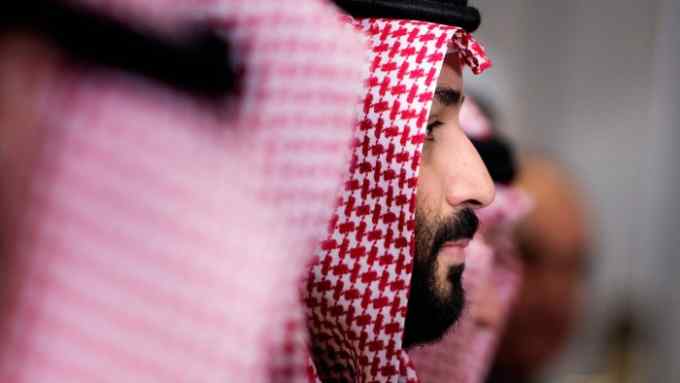Aramco IPO puts Saudi Arabia’s grand vision to the test

Roula Khalaf, Editor of the FT, selects her favourite stories in this weekly newsletter.
Saudi Arabia is counting on overseas investors to make a success of Saudi Aramco’s listing, adding fresh urgency to the kingdom’s plan to open up its stock exchange to foreign funds.
Saudi officials are looking to raise $100bn by selling 5 per cent of the state energy giant, which they believe could be worth $2tn. The execution of what is set to be the world’s biggest ever IPO is drawing close scrutiny, however, and the fortunes of both company and stock exchange appear increasingly entwined.
While Saudi Arabia has said it will list on the domestic Tadawul exchange, the kingdom’s willingness and preparedness for a simultaneous or sequential listing abroad — such as in London, New York or Hong Kong — are in doubt. Saudi Arabia is even exploring alternative options, including a private sale, as the difficulty of executing a foreign listing has become more apparent.
As such, the success of a domestic listing will depend on the kingdom’s ability to lure foreign capital. To achieve even a small portion of that $100bn, the Tadawul needs to open up to foreign investment quickly and build confidence in Saudi economic reforms. It will act as a litmus test for whether global investors are to buy into the country’s radical plan to diversify away from oil under Saudi crown prince Mohammed bin Salman.
Earlier this week the company announced a boardroom reshuffle that will add five new members to its board of directors as it prepares for change.
As officials weigh their options on the IPO’s structure, Khalid Al Hussan, chief executive of the Tadawul, is lobbying for the exchange to be the sole venue for the listing and is making the preparations to facilitate a listing of this size.

Some officials argue a Saudi-only listing would boost the kingdom’s capital market and give ordinary Saudis a share of their nation’s vast oil resources. “We are doing whatever it takes to satisfy such a unique listing,” Mr Hussan said in New York during a visit by the crown prince in March.
Though Mr Hussan stressed that the Tadawul was ready for the listing, there are concerns that its size might overwhelm the exchange — especially if there was no foreign counterparty to take on a portion of the shares.

The Tadawul’s $466bn market capitalisation is dwarfed by the London Stock Exchange’s $3.6tn and the New York Stock Exchange at $19.6tn.
Saudi Arabia has already enacted reforms to better align with international standards and to attract capital from abroad. These range from adopting new corporate governance rules that enhance the rights of shareholders, to allowing foreign investors to participate in local IPOs.
As a result of changes like these, the FTSE Russell index said in March that it would include Saudi Arabia in its emerging market index. A similar decision in relation to the MSCI’s EM index is expected later this year. This means billions of dollars of additional capital from passive funds could be directed into the local market, potentially improving liquidity and capacity. But passive funds will only enter Saudi Arabia once the index upgrades take effect.
FTSE Russell will stagger the inclusion of Saudi equities from March 2019 through to the end of the year. The kingdom had initially targeted 2018 for the Saudi Aramco listing, which now seems more likely to slip into 2019.
Some analysts argue that the improvements the kingdom has made to its financial plumbing will not alone be enough to drive the foreign funds needed to boost Saudi equities’ performance and make the Saudi Aramco IPO a success. “An upgrade doesn’t necessarily mean more inflows,” says Rachel Ziemba, strategist at Alpha Z Advisors. “Success of the broader reform agenda is key,” she adds, referring to Saudi Arabia’s strategy to diversify its economy away from its hydrocarbon riches and create a more robust private sector.
Mohammed El-Kuwaiz, chairman of Saudi Arabia’s Capital Market Authority, says boosting the number of investable stocks will help. The IPO is expected to pave the way for a stream of others. “The more offerings you have the more open you are to the global investor base,” he adds.
Yet for all the improvements the Tadawul has made, it still cannot compete fully with the world’s biggest exchanges.
Hasnain Malik, head of equity research at Exotix Capital, says exchanges such as the LSE “have greater liquidity, accessible free float for foreigners and more stringent transparency requirements on listed companies’ disclosure”.
Still, Mr Hussan argued in New York that the FTSE Russell upgrade was “just the beginning” and “proof of the confidence and attractiveness” of the Saudi market.

Comments